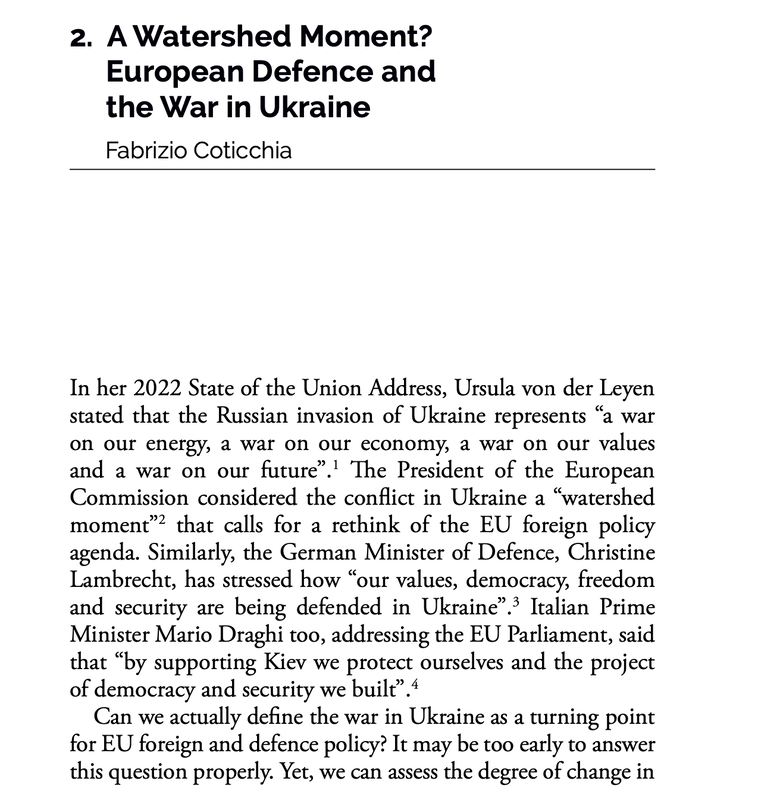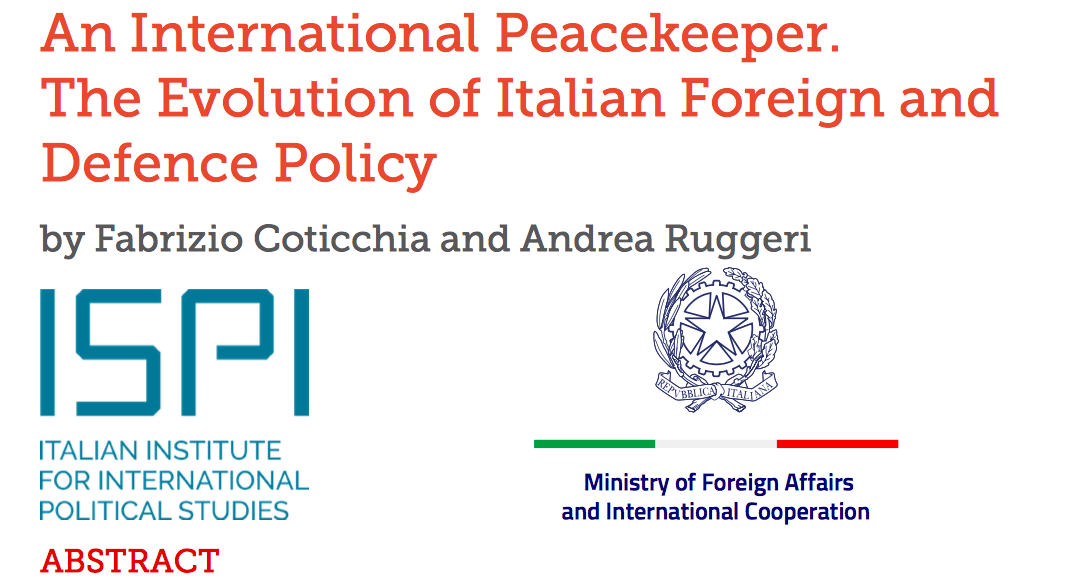"A Watershed Moment? European Defence and the War in Ukraine” (2022). . I'm glad to have published this paper in the ISPI Report (edited by S.Giusti and G.Grevi) “Facing War: Rethinking Europe’s Security and Defence”. You can download the report here."The government of change? Migration and defence policy under Giuseppe Conte’s first cabinet"8/7/2022
Glad to see my latest paper (with M.Ceccorulli and S.Gianfreda) published on Contemporary Italian Politics. The paper focuses on (populist) political parties and foreign policy change in Italy. The abstract of the manuscript (titled: The government of change? Migration and defence policy under Giuseppe Conte’s first cabinet) is here below:
|
Author
Fabrizio Coticchia is Professor of Political Science at the University of Genoa. |



